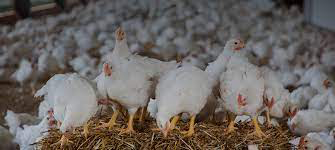SECURITY: Diversifying exports markets by expanding trade relations with African, Asian and Middle East markets
By Ido Lekota
The kerfuffle around South Africa and the United States trade relations has turned for the worst with poultry producers crying foul and accusing the Cyril Ramaphosa government of kowtowing to the Americans at the expense of food security and a sustainable local poultry industry.
This follows when the Department of Agriculture made a controversial decision to temporarily allow the United States to impose and lift bans on its poultry exports to South Africa, allowing the US the authorities to determine the health standards for its poultry exports. The decision, rooted in broader trade negotiations and geopolitical pressures, has profound implications for South Africa’s economic development, the health of its domestic industry and its sovereignty over agricultural standards.
This happens in the background of an avian influenza epidemic in the US and Europe that has resulted in 27 American states being y banned by the South African authorities from exporting poultry to this country.
As South African Poultry Association chief executive Izaak Breitenbach points out, by SA granting the US the right to determine its own disease status and export policies the situation is reversed. Instead by allowing the US to “self-impose and self-lift” bird flu restriction South Africa has created a conflict of interest for the Americans – whereby they could prioritise their own interests and potentially expose South Africa “to the very disease that cost the local poultry industry R9.5 billion and wiped out 30% of its long-living chicken flock in 2023.”
Historically, especially under the African Growth Opportunities Act (AGOA, South Africa has measures in place allowing US imports while also having in place measures to protect local industries. For example, South Africa maintains the Sanitary and Phytosanitory (SPS) measures consistent with international best practices, including import suspensions or bans during disease outbreaks (as seen with Brazil’s poultry imports suspended temporarily due to avian influenza). Regionalisation protocols are also applied to restrict imports from affected regions while allowing trade from disease-free zones.
There are also in place disease surveillance and control protocols with which South African authorities continuously monitor global and domestic disease risks. In the event of outbreaks, import restrictions are swiftly imposed or adjusted. The government also supports vaccination efforts against strains like H5N1 to enhance domestic poultry resilience.
Despite these measures the decision to allow the US to self-impose and lift export bans effectively circumvents some of South Africa’s regulatory controls, raising concerns about biosecurity and market fairness from the local poultry industry.
South Africa’s situation is compounded by the robust trade agenda pursued by the US under President Donald Trump’s “America First – which is pushing aggressively to finalise trade agreements with over 180 countries, seeking to open markets for US agri-products.
This has pressured South Africa to concede to US demands related to poultry imports – including the right for the US to assess and remove bans on poultry exports independent of South African oversight. – leading to the temporary concession by the Department of Agriculture allowing the US this authority as part of a broader framework deal intended to maintain good relations without escalating tariff reprisals or losing AGOA.
Unfortunately this is at the country’s huge cost when it comes to the country’s poultry’s sustainability and overall economic development. On the other hand, allowing another country to determine the health safety of imports can be viewed as relinquishing regulatory autonomy. This sets a concerning precedent that could be exploited by other trade partners, undermining South Africa’s long-term ability to protect its consumers and industry sectors. By conceding on poultry imports South Africa risks deepening its dependence on the US market while weakening a domestically strategic industry. The risk is cheaper imports could flood the market; harming local producers unable to compete on price or scale, ultimately affecting South Africa’s broader economic diversification and industrialization ambitions.
While the agreement may unlock trade benefits in other sectors and preserve AGOA status – providing access to US markets for other goods – many industry stakeholders warn that sacrificing standards in farming sectors is a short-term trade-off with potentially severe long-term consequences for food sovereignty and economic stability.
Despite the challenges posed by its concession, South Africa has several paths to mitigate the negative impacts and recalibrate its approach.
First, South Africa should work to regain full control over health and safety standards for poultry imports by renegotiating terms that restore authority of its Department of Agriculture and relevant regulatory agencies. This is important to protect biosecurity and public health.
It is also critical for the country to involve the domestic poultry industry, consumer groups, and scientific experts actively in ongoing trade negotiations. Such transparent processes will build trust and help shape agreements that balance trade benefits with local industry sustainability.
There is also the option to diversify markets by expanding trade relations with African, Asian, and Middle Eastern markets that can enhance economic resilience and negotiation leverage.
The country should also explore investment in biosecurity infrastructure, local value-addition, and innovation in farming practices will boost competitiveness, making it less vulnerable to cheaper imports.
Finally, South Africa should seek more comprehensive trade and investment partnerships with the US that integrate benefits across multiple sectors, ensuring concessions in one area like poultry imports are offset with gains and protections in others.
* Ido Lekota is an independent journalist and political commentator


































